
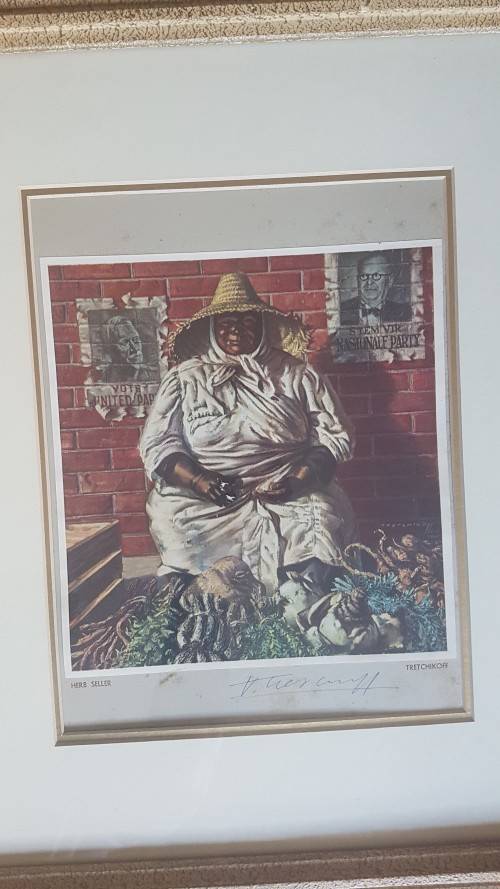
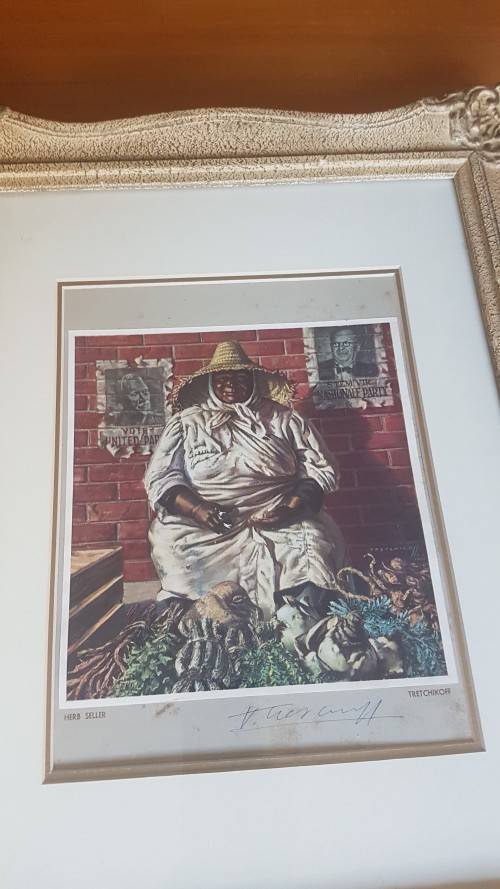
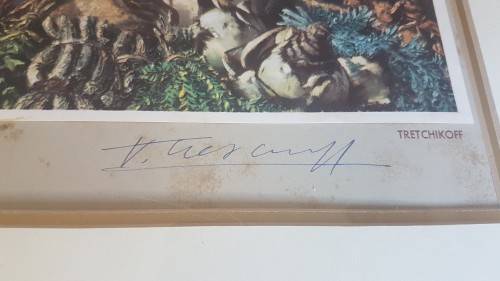
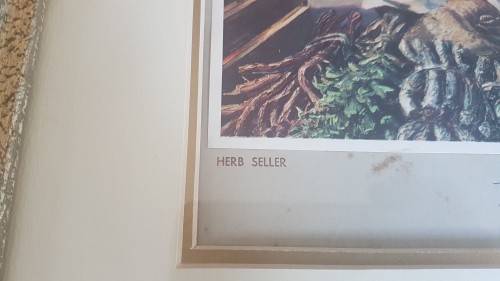
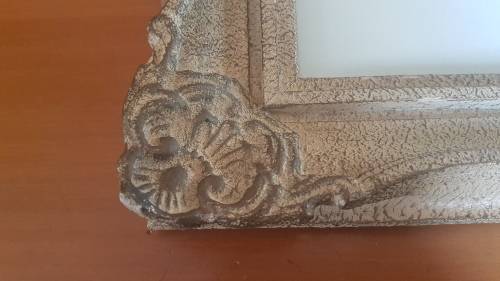
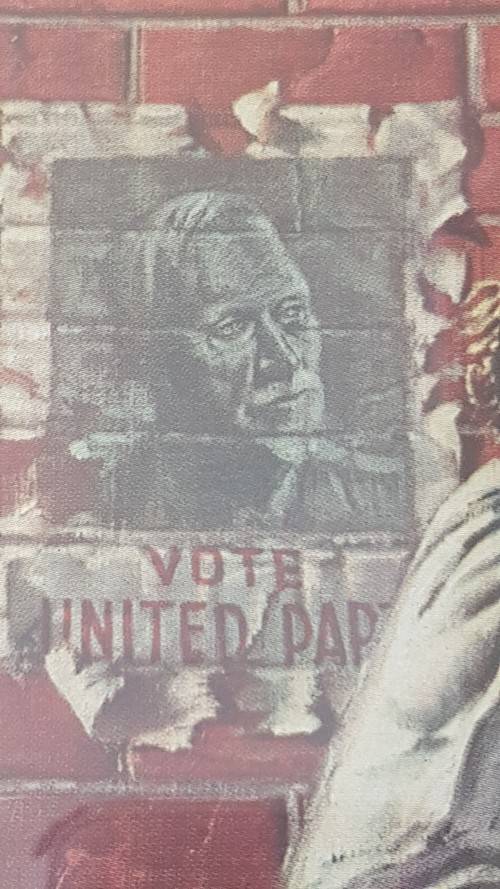
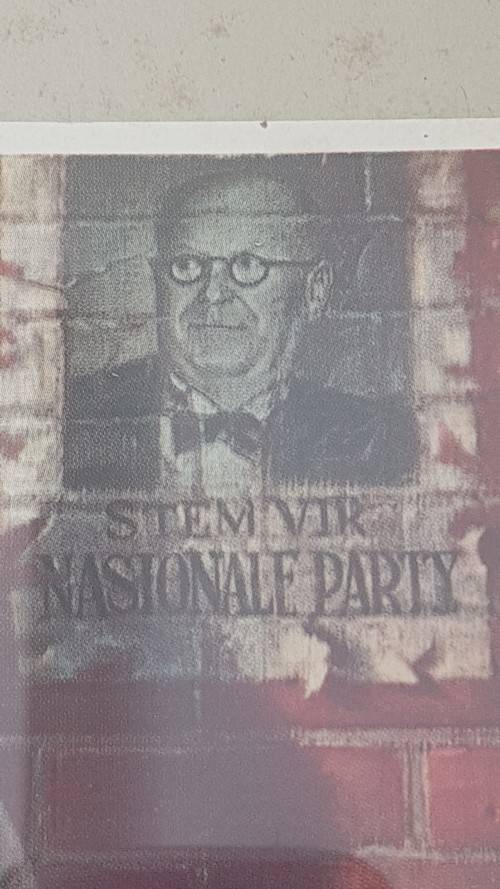

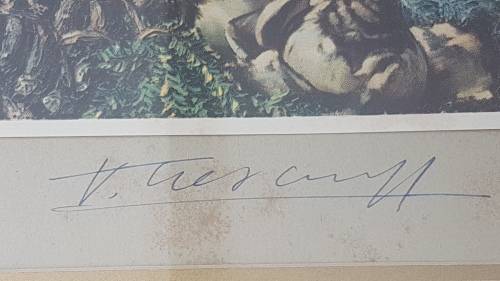





HAND SIGNED by Tretchikoff . Herb Seller. Framed Colour Plate. Ornate gilt mid-century frame.
Check my rate
| Main centres: | 1-3 business days |
| Regional areas: | 3-4 business days |
| Remote areas: | 3-5 business days |















| Main centres: | 1-3 business days |
| Regional areas: | 3-4 business days |
| Remote areas: | 3-5 business days |
Hand signed by Tretchikoff, this is a colour print of a Herb Seller in Cape Town, in 1950. Reproduced from an original painting by Tretchikoff in 1952 as part of his series entitled Native Colour Prints a series of raised colour plates produced to a high standard by Howard Timmins of Cape Town. The original painting was at that point owned by a Mr. A.S.A. East. Later it was owned by Jan Haak and then Pik Botha .
In an ornate mid-century frame, right for the period and mounted in very clean white mount.
Ready to hang on your wall as a very attractive piece.
Print and mountcard are complete and not stuck down.
Print within mount is 19.5 cm x 26 cm ( part of card loosely concealed behind mount ).
Frame is 49 cm x 40 cm.
The herb seller Wilhelmina Kleinsmidt passed away in 1949, one year after the picture was painted.
Description on back of card:
"Herb Seller.
At her "stand" day after day at the Grand Parade market this Coloured herb seller was as well-known to Capetonians as any politician or statesman at the time. Indeed, while their fortunes waxed and waned with succeeding elections, her name remained constant for two generations. When she died shortly after this study was completed, her place was taken by her daughter and so the tradition of the herb dealer is carried on down the years. "
To illustrate the point, Tretchikoff has painted tattered old posters of Jan Smuts and D.F. Malan on the wall behind the smiling eternal face of the herb seller. Interestingly, the original painting was at various times owned by Jan Haak, minister of economic affairs, and hung in his house. Later the painting was owned by R.F. "Pik" Botha, the long-time minister of foreign affairs. ( according to Boris Gorelik in his book Incredible Tretchikoff ). Gorelik goes on to observe that "the picture of a cheerful coloured woman looking as if she could not care less about politics was probably much to the liking of these apartheid leaders".









